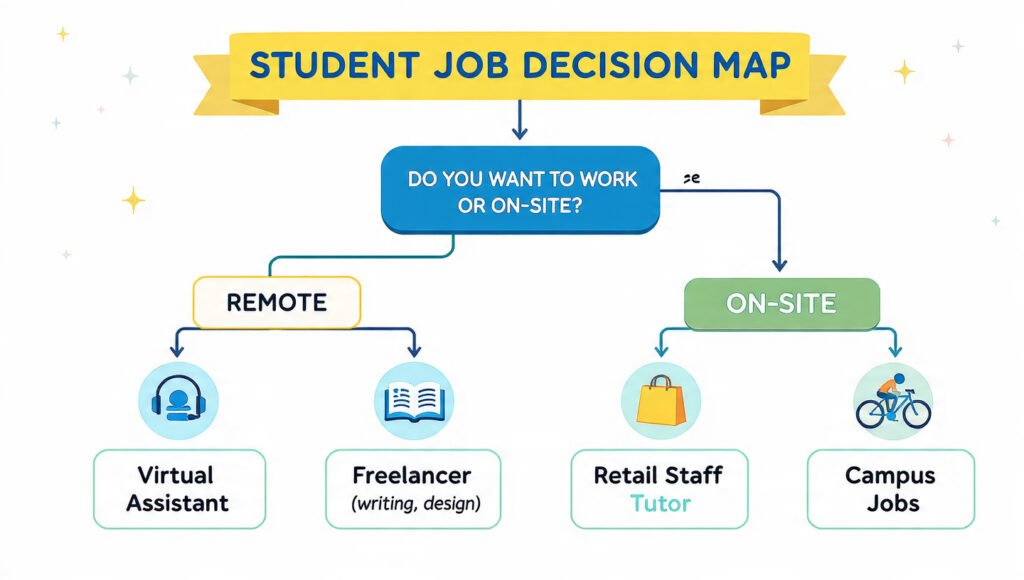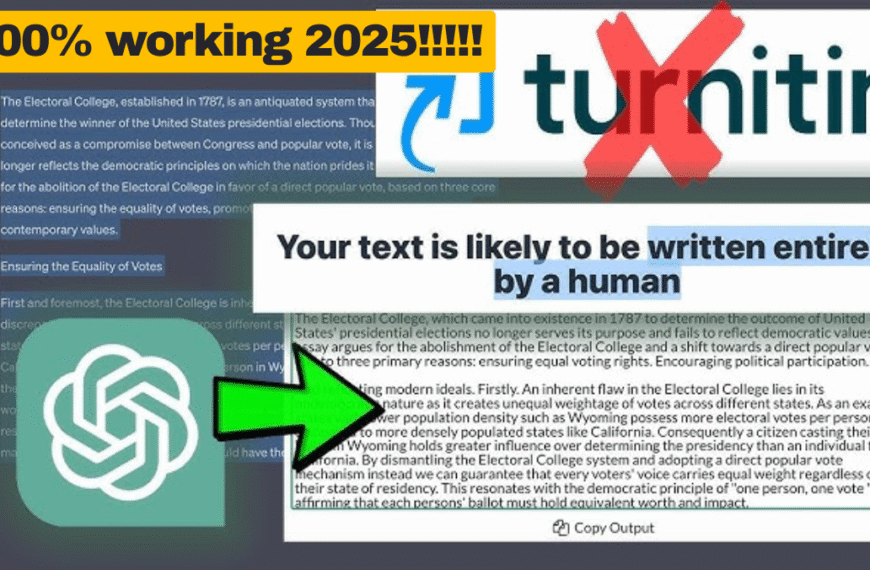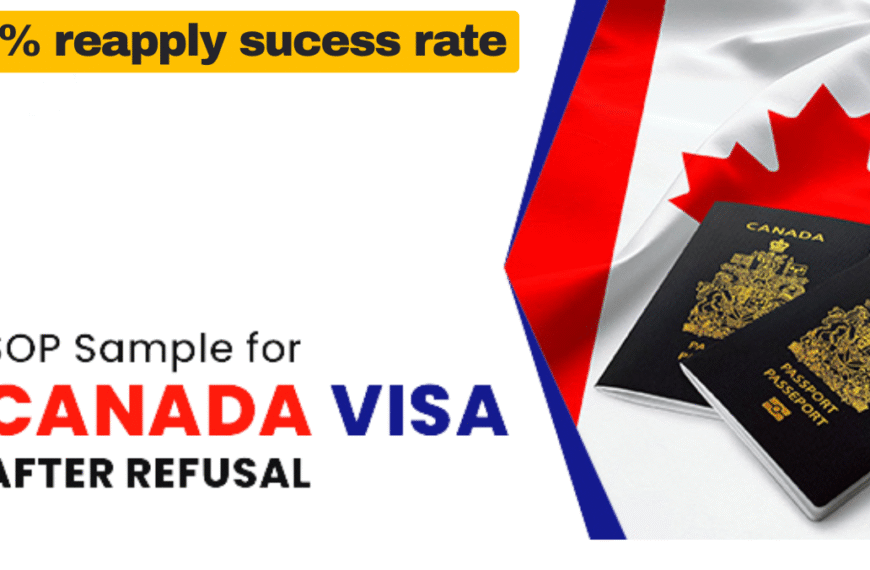So you’ve decided to study in Canada—and now you’re wondering, “What are the best jobs for international students in Canada 2026?” With living costs rising and competition growing, finding a job that fits around your study schedule is more important than ever. But not all roles are created equal: some offer flexibility, decent pay, and resume value, while others make your life harder.
In this article, you’ll discover a curated list of the top 10 jobs tailored for international students in Canada in 2026—roles that balance flexibility and earnings. We’ll break down Canada’s work permit rules, explain how to find these jobs, give you winning resume and interview strategies, and help you avoid common pitfalls. We also analyze wage trends across provinces, share real student case studies, and highlight future job market signals.
By the end, you’ll have a clear roadmap for landing a fulfilling, manageable gig that boosts both your bank account and your career prospects. Let’s get started—your ideal student job in Canada is waiting.
Canada’s Work Rules for International Students (2026 Update)
Understanding Canada’s student work permit rules is critical before you begin your job search. These rules shape exactly how many hours, which types of work, and which times you can legally hold a job while studying.

1. Work Hours Limit During Classes
Typically, international students are allowed to work up to 20 hours per week while classes are in session. This ensures that academics remain the priority. However, in some cases the Canadian government has temporarily relaxed these limits to respond to labor shortages. It’s crucial you check the latest updates from IRCC (Immigration, Refugees and Citizenship Canada) to see if changes apply in 2026.
2. Full-Time Work During Scheduled Breaks
During official breaks—like summer, winter, or spring break—you can often work full-time (40+ hours) without violating permit rules. This is a prime opportunity to stack extra earnings. Seasonal roles like landscaping or hospitality often hire heavily during summer months. CIC News
3. Co-op / Internship Eligibility & PGWP Impact
Many programs in Canada require co-op or internship placements built into curriculum. If so, you may be eligible to work beyond the 20‑hour limit under a co-op permit. Choosing a degree at a Designated Learning Institution (DLI) that offers PGWP eligibility is also vital: post-graduation, you’ll want a role that counts toward full-time work experience for permanent residency.
4. Permit & Visa Restrictions & Recent Policy Changes
In recent years, Canada has tightened some rules around study permits and work eligibility. For instance, new caps on international student permits have been introduced. There was also a 2025 projection that 30% fewer PGWPs might be approved, affecting job planning for graduates.
Unique insight: If new policies limit PGWP eligibility, one strategy is to choose part-time jobs that align with in-demand NOC codes (National Occupational Classification). That way your work still supports your immigration pathway. Before accepting a job, check whether it aligns with TEER codes that IRCC/Express Entry considers relevant.
Top 10 Jobs for International Students in Canada 2026
In this section, we dive deep into the best job opportunities you can realistically get as an international student in Canada in 2026. These roles emphasize flexibility, pay, and career relevance.
1. Barista / Café Server
Working at cafés or coffee shops (e.g. Starbucks, Tim Hortons) is a classic student job. Shifts are flexible—morning, afternoon, evening—and no formal Canadian experience is usually required. Pay tends to be CAD 15–18/hour, plus tips. Many campus-area cafés prefer student hires for part-time roles.
Why it fits: Barista work helps you build customer service, multitasking, and communication skills—qualities employers love. It’s also low barrier to entry, making it one of the “easiest jobs to get in Canada as a student.”
2. Retail Sales Associate / Cashier
Retail chains and superstores frequently hire students. Pay ranges from CAD 16 to 20/hour depending on store and province. Retail roles build soft skills like sales, inventory, and point-of-sale systems.
Extra advantage: Retail experience is relevant across many industries—so it scales well beyond your student days. Also, retail usually has shifts you can pick around your academic schedule.
3. Food Delivery / Ride Share Driver
Platforms like Uber Eats, DoorDash, SkipTheDishes, and Uber (if you have a valid license) allow you to work as much or as little as you want. Pay can reach CAD 18–25/hour including tips and surge payments.
Because this is gig work, you may be able to take on jobs with foreign clients (if permitted), which can sidestep on-campus work limits. According to CIC News, data annotation and virtual assistant roles are increasingly common remote options. CIC News
4. On-Campus Jobs (Library, Lab Assistant, Admin)
Universities and colleges often prioritize hiring their own students. Roles include library attendant, lab assistant, student admin worker, or departmental support. Pay typically ranges CAD 16–22/hour.
Benefit: No commute, safer work environment, and often more flexible. It helps you connect inside your academic institution and may lead to mentorship or research opportunities.
5.Tutoring / ESL Teaching
If you excel in a subject or are fluent in English, you can tutor peers or teach ESL. Hourly rates often range CAD 20–35+. Platforms like local universities, language centers, or even YouTube / online tutoring give you reach.
Pro tip: Create a profile on tutoring platforms, gather reviews, and begin with a low rate to build a reputation. Over time, you may get referrals or students beyond campus.
6. Freelance (Writing, Design, Software Dev)
If you have a marketable skill—writing, graphic design, web dev—you can freelance via Upwork, Fiverr, or local networks. Earnings vary widely (CAD 20–50+).
Why it’s powerful: Freelancing offers remote work, high flexibility, and skill-building. Because the work is often for foreign clients, it may not count toward your Canadian work-hour limitations (check your permit). Freelancing also enhances your portfolio for full-time placements later.
7. Remote / Virtual Assistant / Data Entry
Remote roles such as virtual assistant, data entry, or annotation are ideal—especially if you want online work. CIC News lists data annotator and virtual assistant roles as high-flexibility options with pay upward of CAD 22/hour. CIC News
These help improve your technical and admin skills while avoiding commuting overhead.
8. Warehouse / General Labour
Manufacturing plants, shipping warehouses, and fulfillment centres often need extra hands. Wages may be CAD 17–22/hour depending on region.
While physically demanding, this work can pay more than many service roles and often hires on a rolling basis.
9. Babysitting / Pet Sitting / Care Work
As trust-based, flexible gigs, babysitting or pet care can be a great fit. Rates vary by city—CAD 15–25+. You may find work through local neighborhood groups or apps.
This work also builds responsibility. Some students pair it with part-time remote jobs for steady income streams.
10. Part-Time Tech / IT Internships
For STEM or computer science students, getting a part-time internship is gold. Employers like Google, Amazon, and smaller firms post Canada internships online. Internship Global
These roles often pay well (CAD 22–30+/hour) and can transition into full-time roles later. Even working several hours a week gives you Canadian work experience, which boosts your resume and immigration eligibility.
Unique insight: Approach startups—they often are more open to hiring international students part-time or remotely. Even contributing to open-source projects can help you land such roles.
Regional Variations in Wages & Demand
Not all provinces are equal when it comes to job demand, pay, or living costs. Let’s explore how the landscape shifts across Canada.
Differences by Province (Ontario, British Columbia, Alberta, etc.)
Wages and job availability differ significantly:
- Ontario (Toronto, Hamilton, Ottawa): High demand, but higher cost of living. Retail, food service, tech are common in Toronto.
- British Columbia (Vancouver, Victoria): Good gig economy presence, tourism roles, seasonal hospitality.
- Alberta (Calgary, Edmonton): Strong in warehouse, general labour roles; less competition compared to big hubs.
- Prairies / Atlantic provinces: Fewer high-paying tech roles but possibly more demand in agriculture, logistics, and remote work.
Use Job Bank Canada to compare wages in your city.
Urban vs Smaller Towns
In major cities, competition is high, but so is demand—and pay is better. In smaller towns, fewer jobs but easier to get, lower rent, and sometimes employers are more flexible about hiring international students.
VisaGuidePro Highlights — Must Reads for 2025
Stay informed with two essential guides for international travelers and students this year.
Schengen Visa — Complete Guide 2025
Step-by-step details on visa types, documents, timelines, and tips for hassle-free travel across the Schengen Area.
Read Full GuideAI Detection & Academic Integrity — What to Know
Insights on AI-detection tools like Turnitin, their impact on education, and how to maintain honesty in the AI era.
Read the Analysis*The AI detection article is for informational purposes only and does not endorse cheating or policy violations.
5.3 Top Canadian Cities for Student Jobs: A Quick Comparison
Adjust your expectations based on location—what’s “high pay” in Halifax may be modest in Toronto.
| City | Common Student Jobs | Approx. Pay (CAD/hr) | Why It Stands Out |
|---|---|---|---|
| Toronto, ON | Retail associate, café barista, tech intern | $16–$22 | ✅ Highest job volume ✅ Tech & finance hubs ✅ Strong PGWP employer network |
| Vancouver, BC | Food delivery driver, hotel staff, tour guide | $15–$20 | ✅ Thriving gig economy ✅ Tourism-driven roles ✅ BC PNP Tech access |
| Calgary, AB | Warehouse associate, general labourer, admin support | $17–$21 | ✅ Lower competition ✅ Higher starting wages ✅ Fast-track Alberta immigration pathways |
| Halifax, NS | Campus ambassador, bookstore clerk, retail sales | $15–$19 | ✅ Student-friendly employers ✅ Frequent on-campus hiring ✅ Atlantic Immigration Program (AIP) eligibility |
Earning Potential: Pay, Tips & Taxes
Getting paid isn’t just about the hourly rate. You need to understand how tips, bonuses, and taxes factor in.
Hourly Wages & Examples
Across roles:
- Barista: CAD 15–18/hr + tips
- Retail associate: CAD 16–20/hr
- Food delivery: CAD 18–25/hr (including tips)
- Tutoring: CAD 20–35+/hr
- Internships / dev roles: CAD 22–30+/hr
These vary by province, region, and your experience level.
Tips, Commissions, Bonuses
Roles in food service or hospitality often include tips, which can significantly boost income. Retail commissions or endpoint bonuses (holiday pay, performance) can further increase earnings. Always clarify tip policies and bonus structures before accepting a job.
Taxes, SIN & Filing Requirements
To legally work, you need a Social Insurance Number (SIN). Even part-time income is taxable. At year-end, file Canadian taxes in the province where you worked. You may be eligible for refunds or benefits depending on income thresholds. Ensure deductions are correct and save documents.
Unique insight: Some remote or freelance income (especially from foreign clients) might not count under Canadian work-hour limits—but you still must declare income under tax laws.
Quick Takeaways / Key Points
- International students in Canada can typically work up to 20 hours/week during study periods and full-time during breaks.
- Ideal jobs are flexible, low barrier, and resume-building.
- Top roles include barista, retail, delivery, tutoring, freelancing, on-campus jobs, and tech internships.
- Wages vary by province and city; compare through Job Bank Canada.
- Use university portals, job platforms, gig apps, and networking to find roles.
- Craft a Canadian-style resume and highlight transferable skills, even without Canadian experience.
- Be mindful of taxes, SIN, and work permit rules.
- Use student roles to build Canadian work experience, which supports PGWP and PR paths.
- Monitor evolving policies (e.g. permit limits or PGWP changes) and modify your job plan accordingly.
Hourly Wage Comparison of Student Jobs in Canada 2026
Conclusion
Finding the best jobs for international students in Canada 2026 isn’t about chasing the highest hourly rate—it’s about striking balance between earnings, flexibility, and long-term value. Whether you’re pulling espresso shots, tutoring peers, delivering food, or interning in tech, the right role supports both your study life and your career goals.
Start by understanding your permit limitations and which roles align with your visa. Then, aim for jobs that build skills, expand your network, and give you Canadian work exposure. Use campus portals, gig platforms, local job boards, and freelancing sites to cast a wide net. Don’t get discouraged if early jobs seem humble—they’re stepping stones. With persistence, those roles can evolve or lead to full-time opportunities.
Importantly, always keep an eye on policy changes. Canada’s immigration and work rules have shifted in recent years, and new updates may affect how many hours or which jobs you can take. Adjust your strategy accordingly and be proactive in staying informed.
If you found this guide helpful, use it as a blueprint. Try applying to a few jobs this week with a polished resume, track your progress, and refine your approach. Your ideal student job is out there waiting—go get it, and let it set the stage for long-term success in Canada.














